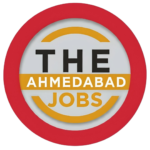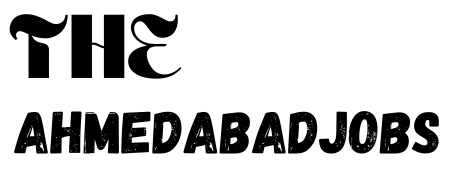Understanding the Current Job Market Landscape
The modern job market is characterized by intense competition, driven by various global and regional factors. Globalization has expanded job opportunities while also increasing the talent pool, as employers now have access to candidates from around the world. Technological advancements have further transformed the landscape, automating many traditional roles and creating new ones that necessitate specialized skills.
According to the Bureau of Labor Statistics, the disparity between the number of job seekers and available positions is stark. In May 2023, for example, there were about 6.9 million job openings versus 9.6 million job seekers in the United States alone, underscoring the level of competition individuals face. This imbalance necessitates a strategic approach to job searching, tailored to sector-specific nuances.
Industry trends also significantly shape the job market. The tech industry is a prime example, where rapid advancements in fields such as artificial intelligence and cybersecurity demand continuous skill development. Conversely, the healthcare sector is experiencing growth driven by an aging population, leading to an increased need for healthcare professionals. These industry-specific dynamics require job seekers to stay informed about relevant trends and required competencies.
Furthermore, economic shifts play a critical role in the job market’s evolution. Economic downturns typically tighten job availability, forcing candidates to compete even harder for existing positions. By contrast, periods of economic growth often create a surplus of job openings, but these can still be competitive due to varying requirements and skill shortages.
Understanding the current job market landscape is essential for an effective job search strategy. Awareness of how globalization, technological progress, and economic fluctuations impact job availability and requirements enables candidates to tailor their approach. By aligning skills and experiences with industry needs and staying abreast of market trends, job seekers can enhance their prospects and stand out in a crowded field.“`html
Building a Strong Personal Brand
In today’s competitive job market, building a strong personal brand is vital. Your personal brand is a representation of your unique value proposition—your skills, experiences, and personal qualities that distinguish you from other candidates. Defining this unique value proposition is the first crucial step. Reflect on your strengths, the expertise you bring to the table, and how these align with the roles and industries you are targeting.
Consistency is key when it comes to personal branding. Ensure that all your professional profiles and social media platforms reflect the same message. For example, your LinkedIn profile should echo the narrative found on your personal website or portfolio. Utilize professional photos, consistent headlines, and a similar tone of voice across these platforms to build a coherent brand image.
Creating a compelling LinkedIn profile is essential. Begin with a strong headline that encapsulates your professional identity. The summary section should articulate your unique value proposition, showcasing your achievements and expertise. Highlight relevant experiences, skills, and endorsements, and don’t forget to engage with posts and groups related to your industry to improve visibility.
A personal website or portfolio can further enhance your brand. This central hub for your professional work should include detailed information about your projects, case studies, and testimonials. An integrated blog can demonstrate thought leadership and deepen engagement with your audience. Ensure that the design and content of your site are polished and reflect your professional standards.
Networking and industry engagement are also crucial in building a strong personal brand. Attend conferences, webinars, and networking events to connect with industry experts. Engage with content on platforms like LinkedIn by commenting on posts from leaders in your field or joining professional groups. Building these relationships can enhance your visibility and credibility within the industry.
Enhancing Your Skill Set
In today’s ever-evolving job market, continuous learning and skill development are paramount. To remain competitive, it is essential to acquire both hard and soft skills that are in high demand across various industries. Hard skills refer to specific, teachable abilities such as data analysis, programming, and financial modeling, while soft skills encompass critical interpersonal attributes like communication, leadership, and problem-solving.
Identifying gap areas in your current skill set is the first step towards enhancing your capabilities. Conduct a thorough self-assessment and seek feedback from peers, mentors, or supervisors to understand where you need improvement. Another effective strategy is to analyze job postings in your desired field and note the recurrent skills employers seek.
Once you’ve identified the areas requiring development, explore a variety of educational resources. Online platforms such as Coursera, LinkedIn Learning, and edX offer courses and certifications covering a broad spectrum of subjects. Workshops, both virtual and in-person, provide hands-on learning experiences, while industry-specific certifications can significantly bolster your credentials.
Staying abreast of industry trends is equally crucial. Regularly reading industry publications, following thought leaders on social media, and subscribing to relevant newsletters can keep you informed about emerging skills and technologies. Attending webinars, participating in professional groups, and engaging in networking events offer opportunities to share insights and learn from experts and peers.
By prioritizing continuous skill development and actively participating in your industry community, you not only expand your knowledge base but also increase your overall marketability. This proactive approach not only enhances your current capabilities but also prepares you to adapt to the dynamic demands of the job market, positioning you as a valuable asset to potential employers.
Crafting an Impressive Application Package
In the quest to stand out in a competitive job market, crafting an impressive application package is a critical step. Your resume and cover letter serve as your initial introduction to potential employers, making it essential to customize each document for every job application. Tailoring these documents to the specific job description and company ensures that your skills, experiences, and achievements resonate directly with what the employer is seeking.
When writing your resume, begin with a clear and concise format. Prioritize the inclusion of key achievements and use quantifiable results to highlight your impact. For example, instead of merely stating that you “improved sales,” specify that you “boosted sales by 25% in the first quarter.” Numbers and percentages provide tangible proof of your accomplishments and create a stronger impression.
Your cover letter should complement your resume by elaborating on your most relevant experiences and skills. Address the hiring manager by name if possible and express genuine enthusiasm for the role and the company. Articulate how your background aligns with the company’s goals and how you can contribute to their success.
A well-prepared interview strategy is equally crucial. Start by thoroughly researching the company – understand their mission, values, and recent achievements. Familiarize yourself with common interview questions and prepare your responses in advance, focusing on your key strengths and how they relate to the role. During the interview, convey your enthusiasm and make clear connections between your experiences and the job requirements.
Additional materials can also give you an edge. Depending on the industry, a job-specific portfolio showcasing your best work can be highly advantageous. Letters of recommendation from previous employers or mentors can further substantiate your credentials and provide potential employers with external validation of your capabilities.
By carefully crafting a personalized and impactful application package, you position yourself as a strong candidate who stands out in a competitive job market.


